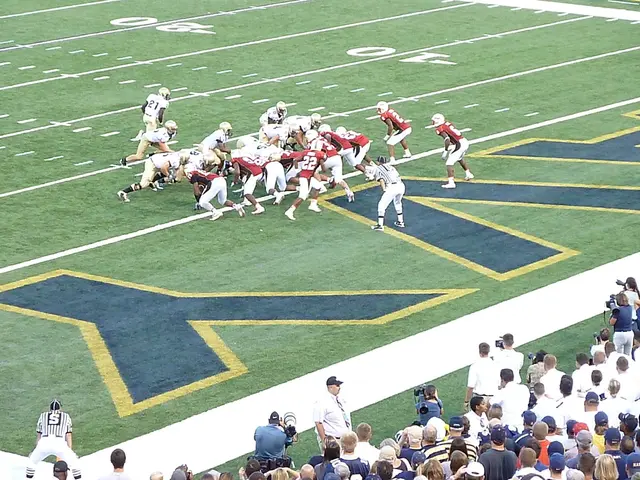Federal authorities, directed by Trump, deploy within Washington D.C., with the president voicing intentions to seize power
In a move aimed at addressing rising violent crime and restoring law and order in the nation's capital, President Donald Trump has directed an increased presence of federal law enforcement in Washington D.C., starting on Friday.
The effort involves placing the D.C. Metropolitan Police under federal control, deploying at least 500 federal law enforcement officers, and mobilizing 800 National Guard troops to support local law enforcement. The federal presence will last for a week but could be extended "as needed," through an executive order signed by Trump.
The purpose of this federal takeover, as stated by Trump and official White House documents, includes reestablishing public safety for citizens, tourists, and federal employees amid what the administration calls a "crime emergency" in D.C., preventing crime-induced disruptions to the functioning of the federal government, safeguarding government workers, and securing federal facilities. The intervention also aims to address what is described as a failure by the D.C. local government to maintain public order and safety, and to tackle homelessness and eradicate "slums."
The scope of this intervention is broad, comprising the invocation of Section 740 of the District of Columbia Home Rule Act to assert federal authority over the Metropolitan Police Department, effectively superseding the local police chief's control. Deployment of several hundred federal law enforcement officials alongside National Guard troops to patrol and ensure security on the streets is also part of the plan. Direct federal control over certain elements of metropolitan policing and coordination between federal military and law enforcement forces in the capital is also expected.
Regarding the impact on local governance, the directive represents a significant federal encroachment on D.C.'s Home Rule, which normally grants the district substantial local self-governance, especially in policing matters. This move has prompted legal concerns and criticism. The District’s elected mayor and officials have questioned the legality and appropriateness of federal control over the local police force. The federal assumption of policing authority can undermine local accountability and governance autonomy by subordinating local public safety decisions to federal priorities. This intervention may strain relations between federal and local authorities and provoke political controversy over jurisdiction, civil rights, and the militarization of policing in the capital.
Federal personnel will focus on tourist hotspots, popular locations around the city like the National Mall, museums, monuments, Union Station, and city parks. Davis, an Advisory Neighborhood Commissioner, expressed concerns about the city's youth and pockets of lawlessness. Trump has pushed for changes in Washington's criminal code to start charging teens as adults, and recently confirmed U.S. Attorney for D.C. Jennine Pirro has also pushed for changes in laws for criminal offenders under the age of 25 that increase sentences.
The directive comes after a violent carjacking incident in the city. Pirro has stated that Washington's young people are being "coddled" and need to be held accountable. Andrea Davis, an Advisory Neighborhood Commissioner, raised questions about the function of federal officers during the initial seven-day run and their mandate, arresting powers, and detainment capabilities.
Despite the increased federal presence, crime in Washington has dropped significantly, with violent crime hitting a 30-year low last year and falling another 26% so far in 2025. Carjackings have declined significantly since hitting a high in 2023, with less than 200 reported incidents so far in 2025. Rep. Eleanor Holmes Norton, the district's non-voting delegate in Congress, opposes Trump's directive on law enforcement and has pushed back on ending Home Rule.
Trump is considering repealing Washington's limited ability to govern itself, which would require an act of Congress to overturn the 1973 Home Rule Act. The federal officers will be identified in marked units and will be highly visible. The directive, while intended to improve security, has sparked debate and controversy over its impact on local governance and civil rights.
- The directive signed by President Trump includes policy changes regarding crime and justice, specifically aiming to charge teens as adults and increase sentences for criminal offenders under the age of 25.
- The broad intervention in Washington D.C.'s policing, which involves federal law enforcement and National Guard troops, is aimed at addressing not only violent crime and car accidents but also broader issues such as homelessness and slums.
- General news outlets have reported a significant drop in crime in Washington D.C., including a 30-year low in violent crime last year and a 26% decrease so far in 2025, despite the heightened presence of federal law enforcement.








